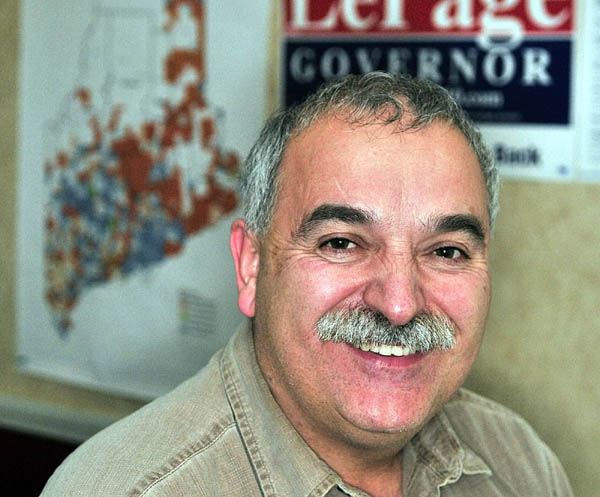WASHINGTON – National Republican leaders have recommended that elected Maine delegates who support Ron Paul give up half of their seats at next week’s GOP convention or risk losing all 20 because of major problems during the delegate-selection process, a Maine official said Wednesday.
But Paul’s delegates insisted they were duly elected and said they were not interested in giving up any seats.
“We reject that,” said Matt McDonald, a Paul delegate from Belfast, regarding the latest compromise floated by Republican National Committee officials. “No compromise, no deal.”
The disagreement raises the stakes in a political stalemate that could end with Maine losing most of its convention delegates.
Charlie Webster, chairman of the Maine Republican Party, said he was told that the Republican National Committee had found enough evidence of procedural problems at Maine’s convention in May to deny the 20 Paul delegates seats at the national convention, which starts Monday in Tampa.
As a compromise, national committee officials have suggested essentially splitting the delegation in half, allocating 10 seats to Paul and 10 to the presumptive nominee, Mitt Romney. Maine’s four remaining at-large delegates are not affected.
Kirsten Kukowski, RNC spokeswoman, said a decision from the Committee on Contests was still pending. She did not say when a decision would be made.
Brent Tweed, chairman of the Maine delegation, said he and others believe that all 20 delegates were properly elected during the state convention. Well-organized Paul supporters essentially took over the convention from more “establishment” Republicans who supported Romney.
“We haven’t agreed to any deal,” Tweed said. “We think the Contest Committee has to rule in our favor and seat all 20 delegates.”
Thousands of party faithful from throughout the country are already arriving Tampa. Maine’s delegates are headed south under a cloud of uncertainty.
Two politically active Maine Republicans, Jan Staples and Peter Cianchette, challenged the legality of the 20 Paul delegates last month with the RNC. Staples and Cianchette, both of whom support Romney, argue that the delegates were improperly elected at a state convention that was marred by illegal votes and parliamentary violations.
The impasse will not affect Romney’s nomination. The former Massachusetts governor has more than 1,500 delegates going into the convention; only 1,144 are needed to secure the nomination.
Paul, a congressman from Texas who’s known for his libertarian views, has fewer than 200 delegates.
The Committee on Contests was expected to release its recommendation on the Maine challenge earlier this week. Paul delegates from several other states, including Louisiana and Massachusetts, agreed earlier this week to compromises similar to the one offered to Maine’s delegation.
If they are rejected, Maine’s pro-Paul delegates intend to appeal to the RNC’s Credentials Committee, which puts together the tentative list of delegates from each state.
They also could appeal to delegates from other states, to attempt to amend the slate of delegates on the convention floor Monday.
Romney supporters have accused the Paul delegates of disrupting party unity while Paul’s backers accuse “establishment” Republicans of disrespecting the energetic, often young voters who were drawn to Paul’s campaign.
Republican Gov. Paul LePage, one of the four at-large delegates, suggested several weeks ago that he may skip the convention if Maine’s delegation is not seated. LePage’s political advisor, Brent Littlefield, declined to confirm or deny Wednesday whether that is still LePage’s intent.
“Whether it’s a Democratic convention or a Republican convention, he believes it is important that the voices of Maine people are heard,” Littlefield said.
Send questions/comments to the editors.






Comments are no longer available on this story